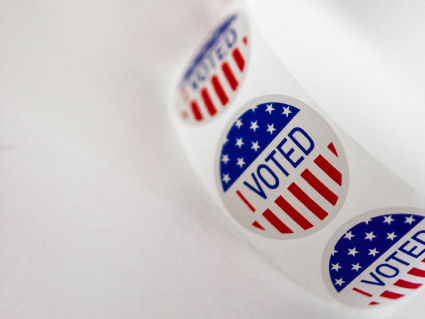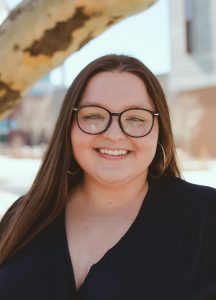Edwards: Old Enough to Vote Should Mean Old Enough to Run

(Courtesy Element 5)
February 13, 2020
Representative Candice Pierucci became the youngest member of the Utah Legislature when she was appointed to the State House by Governor Herbert in late 2019. At 27 years old, she is only two years older than Utah’s constitutional 25 year-old age requirement for House members. She would have been unable to run for her current seat only an election cycle or two ago. Hundreds of potential candidates are prevented from running for office in Utah because of these antiquated candidate age requirements. Utah should repeal these requirements, allowing candidates to run for office when they turn old enough to vote. Until qualified citizens can run at 18, young Utah voters will continue to be denied valuable representation.
Age requirements are inherently different from the other requirements for holding elected office in Utah. Citizenship status, voter registration, and length of residency in the state and district are at least tacitly related to the responsibilities of public officials. Candidate age requirements, however, presume that older candidates have more qualifications and disregard the merit of younger candidates.
Utah requires candidates for State Legislature, Auditor, Treasurer and Attorney General to be 25 years old. Gubernatorial and Lieutenant Gubernatorial candidates must be at least 30 years old. There are no explicit age requirements for Salt Lake City mayor, city council, clerk, recorder, auditor, treasurer, assessor, district attorney, sheriff, surveyor and school board, but candidates are required to be registered voters, which creates a de facto age requirement determined by voting age.
Young adults should be able to vote for candidates who will advance their policy preferences and interests— also known as substantive representation. They should also be able to have descriptive representation through politicians who represent a group by sharing certain demographic characteristics, including age. This is not to say that only young candidates can advance the policy preferences of young voters or that young voters are guaranteed to prefer a candidate because they are similar in age. But young voters, just like their older counterparts, should be the judge of who they think will best represent them — even if the candidate only recently became eligible to vote.
Age alone does not equate practical qualification, and the experiences people have at certain ages do not remain static over years of social and political change. The average experience of a 25-year-old Utahn in 1896 (when state’s constitution established most current age requirements) starkly contrasts the average experiences of a 25-year-old today. Age requirements have become outdated and arbitrary measurements as the experiences of different age groups change and young people face complicated problems of their own.
In today’s economic, environmental and political climate, many of the issues faced by young people involve the country and world, issues that cannot be addressed only as private citizens. Young adults in the 1970s faced a similar predicament. The 26th amendment was proposed and ratified in less than 6 months, enfranchising millions of young adults aged 18 to 21. This huge expansion of political rights came in the midst of controversy around the Vietnam War and the draft sending young adults to war without a voice in the government drafting them. If 18 year-olds are old enough to be drafted, trained and deployed to war, why should they be unable to vote for the people who decide if there will be a war in the first place?
If young adults today are old enough to take out student loans, purchase guns, get married, join the military and vote for elected officials, why are they not old enough to run for office themselves?
Allowing candidates to run at the age they can vote would simply allow voters to decide for themselves. Requiring candidates to be 25 or 30 years old does not ensure merit or relevant experience, but it does guarantee that even the most qualified 24-year-old is automatically disqualified simply because they were born too late. If voters are capable of judging whether a candidate over 30 has the necessary qualifications for office, there is no reason they cannot do the same for a candidate below 30.
This article originally appeared in print on Jan. 6 under the headline Turning 18: Get the Right to Vote, and the Right to Run?







